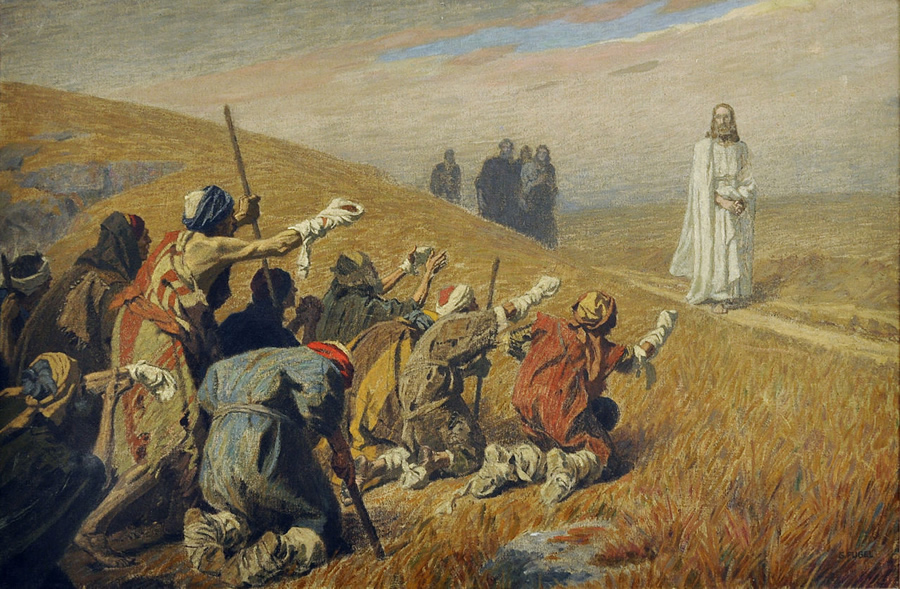
Giving to God and His Work
11-07-2021Pastoral ReflectionsRev. Brian F. ManningWe witness the kindness and generosity of the poor in the two different widows in the first reading and the Gospel reading this weekend. In reading from the first Book of Kings, we learn about a very dire time of famine in Israel. The prophet Elijah in his travels met a pagan widow. We need to remember that Elijah had been told by God that there would be a great drought and a widowed woman would appear to help him. When Elijah saw the woman, he asked for a drink of water. Asking for a cup of water in a desert climate and place was quite normal. He, however, asked for a second cup He even pressed further before she had even answered and asked for some bread. This clearly poor widow had so little to give him; in fact, she did not even have any bread on hand. She was planning to bake the last of her supplies of flour and oil. In a dramatic way Elijah gave her a promise that if she gave what she had, she and her family would not go hungry during this terrible drought.
It is very notable that this widow did not ask Elijah for proof, assurance, or credentials. Instead, she simply trusted. Because of this great trust, her supplies for baking did not run low during the scarce times.
We hear a story in the Gospel of a widow who gave most generously from scant resources. Jesus told His listeners that He noticed her and she was an example of discipleship. He explained to them that here were many people in the time of Jesus who reveled in their power and authority. They wore fancy and expensive clothing or vestments and liked to parade about showing off their authority and power. They were always greeted respectfully, and they liked this forced homage and respect. In public they also prayed so everyone noticed them, and people said they must be very pious. Jesus, however, was not fooled by their behavior. They were hypocrites and would receive a severe condemnation. Jesus also pointed out, in contrast to these powerful people the poor widow who put into the treasury two small coins. We realize that her contribution was small, but in light of her income it was huge. What was even more important her gift did not come from her leftover money, which we would call free cash; it came from her basic money, which we would call her basic budget. Her gift did not advance her cause or help her in any way; her gift would actually help some unknown stranger.
We should realize that both of these widows in our readings put their trust in God first before even themselves. The widow in the first reading must have found it quite difficult to believe the promise of Elijah. The widow of the Gospel trusted in the ministry and service of the synagogue. She gave so that it would support the work of God. In terms of the temple's income, it was small, in terms of God she gave the most.
It was not so important what these widows gave as it was their motivation. They gave without selfishness for the good of others. They were not looking for something for themselves, be it recognition by the temple or by other temple goers. The widow in the temple was not giving because she either approved of what the temple did, or she wanted something. Note that the widows offered their lives for God. We believe that Jesus offered his life for us. There is a significant similarity between their gift and the gift Jesus gave and gives each of us. Our giving to God and His work is a sign that we recognize that our God has given us His Son Jesus Christ in the Eucharist for all of us.
BACK TO LIST